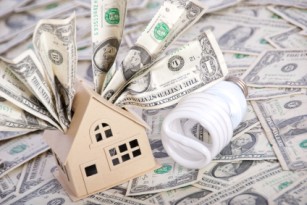It’s easy to tangle up ideas, especially when we approach an issue from a narrow perspective. That seems to be the case with the newly published report by the Breakthrough Institute. Their topic? The “rebound effect.” Their target? Greater levels of energy efficiency. Their conclusion? The rebound effect will negate most of the energy and emissions gains we might see from more productive investments in energy efficiency.
Many in business and policy communities increasingly see energy efficiency as a smart, no-regrets investment opportunity for the U.S. Just one example? It turns out that our current system of generating and delivering electricity to our homes and businesses is an anemic 32 percent efficient. That is, for every three units of coal or other fuel we use to generate power, we manage only one unit of electricity delivered to our homes and businesses. What we waste in the generation of electricity is more than Japan needs to power its entire economy!
What is even more astonishing is that our current level of (in)efficiency has been essentially unchanged since 1960 — since Eisenhower was in office.
And yet, there are any number of technologies that can greatly improve our performance. Combined heat and power (CHP) systems, for example, can deliver efficiencies of 70-90 percent or more, at a substantial economic savings. There is an incredible array of waste-to-energy and recycled energy technologies that can further increase our overall efficiency and save us money.
Yet the Breakthrough Institute suggests that because we would be saving a lot of money, we would actually end up using more energy — maybe sufficiently more to use up the efficiency gains. Many policymakers might look at that and say, if that is true, why bother?
Yes, energy bill savings and lower energy prices would encourage the use of some additional energy. But we might ask: “If efficiency gains would drive more use of energy, why aren’t the nation’s oil companies and electricity generators promoting the heck out of energy efficiency?” The critical element missing from the Breakthrough Institute perspective is that the U.S. economy remains hugely inefficient in its use of energy. It turns out that our actual level of energy efficiency — when we properly work through the numbers, as my colleague Bob Ayres has recently done — is an even more anemic 13 percent. That is, we waste about 87 percent of all the energy we throw at the economic problem. To understand why, consider: a 10 percent efficient lighting system times a 32 percent efficient delivery of electricity is a paltry 3 percent overall system efficiency.
As it turns out, our lagging efforts on efficiency may actually constrain our larger economic productivity. If we are willing to look, there are so many opportunities to improve our energy productivity that we may be able to restore the robustness of our economy and still reduce the wasteful use of energy.
My colleagues at the American Council for an Energy-Efficient Economy and I are working on an analysis showing that we could reduce our cumulative energy consumption by roughly 25 percent and at the same time nearly triple the size of our economy by 2050 — if we deploy cost-effective energy-efficiency measures across the full economy in a coordinated way. This would mean roughly doubling the historical rate of efficiency gains from 1.5 to 3 percent or more per year, which has been accomplished over short periods in the past.
In such a case, it wouldn’t matter if a business used the savings on less expensive energy to purchase other devices that use energy, because the entire economy would be becoming more energy efficient. From this perspective, the goal of boosting energy efficiency is to increase wealth and drive economic development. Our economic productivity is tied to our ability to productively use energy. If we don’t increase energy efficiency, the economy is going to be less robust.




